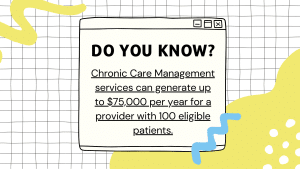Introduction:
In the ever-evolving landscape of healthcare, behavioral health services play a crucial role in addressing mental health and substance abuse challenges. As the demand for these services continues to grow, behavioral health providers face unique financial and administrative hurdles that require specialized revenue cycle management (RCM) strategies.
This blog will delve into the complexities of Behavioral Health Revenue Cycle Management and explore how partnering with RxCredentialing can maximize revenue and make RCM more efficient.
Understanding Behavioral Health Revenue Cycle Management
Behavioral health revenue cycle management is a comprehensive process that encompasses financial procedures, billing, and reimbursement for mental health and substance abuse services. It involves navigating complex payer systems, compliance with changing regulations, and optimizing revenue while prioritizing patient care.
The Key Components of Behavioral Health RCM
Effective behavioral health RCM comprises patient intake and registration, insurance verification, charge capture, claims submission, and payment posting. These essential components form the backbone of a streamlined revenue cycle that ensures accurate reimbursement and maintains financial stability for behavioral health providers.
Billing and Coding in Behavioral Health: Challenges and Solutions
Behavioral health billing and coding present unique challenges due to the complexity of mental health diagnoses and treatment modalities. Overcoming these hurdles requires specialized training for coders, proper documentation, and adherence to guidelines like the DSM-5, ensuring accurate coding for optimal reimbursement and compliance.
Optimizing Insurance Verification and Authorization
Effective insurance verification and authorization processes are crucial for behavioral health providers to avoid claim denials and delays. Utilizing technology and conducting real-time eligibility checks can streamline the process, reducing administrative burden and ensuring timely reimbursement.
Managing Point-of-Service Collections in Behavioral Health
Point-of-service collections in behavioral health play a significant role in improving cash flow and reducing accounts receivable. Implementing transparent and patient-friendly payment policies, offering multiple payment options, and educating staff about the importance of collections can enhance revenue recovery.
Addressing Denials and Appeals in Behavioral Health RCM
Denials and appeals management is vital for behavioral health providers to recover revenue and address payment discrepancies. Conducting root cause analysis, appealing denied claims, and establishing proactive strategies to reduce denials can lead to a more robust revenue cycle and improved financial outcomes.
Navigating Compliance and Regulatory Requirements
Behavioral health providers must navigate a complex web of compliance and regulatory requirements to avoid penalties and legal issues. Staying up-to-date with HIPAA, Medicaid, and Medicare guidelines is essential, ensuring patient data security and accurate billing practices.
Leveraging Technology for Efficient Behavioral Health RCM
Adopting advanced RCM software and electronic health record (EHR) systems streamlines administrative tasks, enhances accuracy, and optimizes revenue cycle performance. Leveraging technology can automate billing processes, facilitate claims submission, and provide data insights for informed decision-making in behavioral health organizations.
The Role of Patient Communication in Behavioral Health Billing
Effective patient communication is pivotal in behavioral health billing to foster understanding and cooperation. Providing clear billing statements, explaining insurance coverage, and discussing financial responsibilities can enhance patient satisfaction and reduce disputes, ultimately improving revenue recovery.
Enhancing Staff Training for Improved RCM Outcomes
Proper training for behavioral health staff is critical for accurate coding, claims submission, and adherence to billing protocols. Continuous education on evolving regulations and coding guidelines ensures a well-prepared workforce that maximizes revenue and compliance.
Analyzing Financial Data for Behavioral Health Performance
Analyzing financial data and key performance indicators (KPIs) provides insights into the financial health of a behavioral health organization. Regular assessment of revenue metrics, denials rate, and accounts receivable turnover empowers informed decision-making to drive financial success and sustainable growth.
Balancing Financial Sustainability and Patient Care
Striking a balance between financial sustainability and delivering quality patient care is a delicate challenge in behavioral health. Ethical billing practices, financial assistance programs, and community partnerships can help providers maintain fiscal responsibility while prioritizing patient well-being.
Telehealth and Behavioral Health RCM
The rise of telehealth in behavioral health services necessitates adapting RCM practices to accommodate virtual care. Understanding telehealth billing guidelines, integrating telehealth data into EHR systems, and ensuring secure telehealth transactions are essential for successful RCM in the digital age.
RCM Strategies for Substance Abuse Treatment Centers
Substance abuse treatment centers require tailored RCM strategies due to the specific nature of addiction treatment and payer requirements. Streamlining admissions, verifying insurance for inpatient and outpatient services, and optimizing billing processes are key elements for effective RCM in substance abuse treatment.
The Impact of Behavioral Health RCM on Patient Satisfaction
A well-executed RCM process directly affects patient satisfaction in behavioral health. Transparent billing practices, timely claims processing, and accurate insurance verification instill confidence in patients, contributing to a positive patient experience and fostering long-term patient-provider relationships.
Preventing Billing Fraud and Abuse in Behavioral Health
Preventing billing fraud and abuse is crucial for ethical and compliant behavioral health RCM. Implementing internal controls, conducting regular audits, and training staff to detect and report potential fraud protect patients and safeguard the integrity of the revenue cycle.
Outsourcing vs. In-house RCM: Pros and Cons
Behavioral health providers must decide whether to outsource RCM or manage it in-house. Evaluating factors like cost, expertise, and control helps determine the best approach, ensuring efficient revenue cycle management aligned with organizational goals.
Understanding the Role of Payers in Behavioral Health Billing
Behavioral health providers collaborate with various payers, such as insurance companies and government programs, in the billing process. Familiarity with payer requirements, contracts, and reimbursement rates is essential to optimize revenue and maintain successful partnerships.
Integrating Behavioral Health EHR Systems with RCM
Integrating behavioral health EHR systems with RCM streamlines data flow and enhances billing accuracy. Seamless data exchange between clinical and financial systems improves documentation, coding, and claims processing, ultimately leading to improved financial outcomes.
The Future of Behavioral Health RCM:
Trends and Innovations
The future of behavioral health RCM is characterized by technological advancements, value-based care models, and increased emphasis on patient-centered billing. Leveraging data analytics, telehealth innovations, and AI-driven solutions will reshape the revenue cycle landscape, improving access to mental health services and financial sustainability.
Measuring Success: Key Performance Indicators for Behavioral Health RCM
Behavioral health organizations gauge RCM success through key performance indicators (KPIs) such as days in accounts receivable, collection rate, and clean claim rate. Regularly monitoring KPIs and benchmarking against industry standards empowers providers to make data-driven improvements and achieve financial goals.
Addressing Disparities in Behavioral Health RCM
Addressing disparities in behavioral health RCM involves ensuring equitable access to care, regardless of socio-economic background or location. Culturally competent billing practices, financial assistance programs, and community outreach play pivotal roles in reducing disparities and improving healthcare equity.
Ensuring Equity in Access to Behavioral Health Services
Ensuring equity in access to behavioral health services involves overcoming barriers like stigma, geographic limitations, and affordability concerns. Implementing outreach initiatives, expanding telehealth options, and collaborating with community resources promote equal access to mental health and substance abuse treatment.
Collaborating Across Behavioral Health Providers and Institutions
Collaboration among behavioral health providers and institutions fosters a comprehensive approach to RCM. Establishing networks, sharing best practices, and standardizing billing procedures lead to economies of scale, improved data sharing, and enhanced revenue cycle efficiency.
Building Resilience: Financial Preparedness for Behavioral Health Crises
Building financial resilience in behavioral health involves strategic planning and risk management. Establishing emergency funds, exploring grant opportunities, and conducting scenario-based financial planning prepare organizations to weather unforeseen crises while maintaining continuity of care.
Maximizing Revenue with RxCredentialing:
Behavioral health providers can achieve optimized revenue cycle management and efficiency by partnering with RxCredentialing. As a leading credentialing and revenue cycle management service, RxCredentialing offers expert solutions tailored to the unique needs of behavioral health organizations.
Reasons to Choose RxCredentialing:
- Expertise in Behavioral Health RCM: RxCredentialing specializes in behavioral health revenue cycle management, staying abreast of industry trends and evolving regulations to maximize reimbursement and financial success.
- Streamlined Credentialing Services: Credentialing is a critical aspect of RCM for behavioral health providers. RxCredentialing expedites the credentialing process, ensuring providers are credentialed accurately and promptly, allowing them to start serving patients sooner.
- Compliance and Quality Assurance: With RxCredentialing, behavioral health organizations gain a partner that prioritizes compliance and quality assurance. This focus ensures ethical billing practices, reduced claim denials, and minimized compliance risks.
- Automated Billing Processes: RxCredentialing’s advanced technology streamlines billing processes, automating repetitive tasks, and reducing administrative burdens. This efficiency leads to quicker claim submissions and improved revenue flow.
- Data Analytics for Informed Decisions: Data-driven decision-making is crucial in behavioral health RCM. RxCredentialing provides comprehensive data analytics, empowering organizations to identify revenue cycle bottlenecks and optimize financial performance.
- Proactive Denials Management: RxCredentialing implements proactive denials management strategies, reducing claim denials and appeals. This approach maximizes revenue recovery and streamlines the revenue cycle.
- Personalized Support and Training: RxCredentialing offers personalized support and training for behavioral health staff, ensuring they are equipped with the knowledge and skills to navigate complex RCM challenges.
- Seamless Integration with EHR Systems: RxCredentialing seamlessly integrates with behavioral health EHR systems, facilitating data exchange between clinical and financial operations for accurate billing and documentation.
Conclusion:
Navigating the complexities of behavioral health revenue cycle management requires expertise, efficiency, and a commitment to patient care.
RxCredentialing offers a comprehensive suite of services tailored to behavioral health providers, maximizing revenue, and ensuring a streamlined and compliant revenue cycle. By partnering with
RxCredentialing, behavioral health organizations can focus on their primary mission of delivering quality care while leaving the financial complexities to trusted experts.
Faqs
Q: What is behavioral health revenue cycle management?
Behavioral health revenue cycle management (RCM) refers to the process of managing the financial aspects of providing mental health and substance abuse services. It involves tasks such as patient registration, insurance verification, billing, and reimbursement to ensure financial stability and optimal revenue generation for behavioral health organizations.
Q: How does behavioral health RCM differ from traditional healthcare RCM?
Behavioral health RCM differs from traditional healthcare RCM due to the unique challenges of mental health and substance abuse services. It involves specialized coding, compliance with mental health diagnostic criteria, and addressing stigmas associated with behavioral health billing.
Q: What are the common challenges in behavioral health revenue cycle management?
Common challenges in behavioral health RCM include managing complex payer systems, reducing claim denials, handling non-standardized billing procedures for different mental health services, and addressing disparities in access to care.
Q: How can RxCredentialing assist in optimizing behavioral health RCM?
RxCredentialing offers expertise in behavioral health RCM, providing streamlined credentialing services, advanced technology for automated billing processes, data analytics for informed decisions, and personalized support for staff training.
Q: What impact does efficient RCM have on patient care in behavioral health?
Efficient RCM directly affects patient care in behavioral health by ensuring accurate billing, timely reimbursements, and reduced administrative burdens. This leads to improved patient satisfaction, allowing providers to focus on delivering quality mental health and substance abuse services.
Q: How does RxCredentialing handle denials management in behavioral health RCM?
RxCredentialing implements proactive denials management strategies, including root cause analysis and timely appeals, to minimize claim denials and optimize revenue recovery for behavioral health organizations.
Q: Does RxCredentialing offer compliance support for behavioral health providers?
Yes, RxCredentialing prioritizes compliance and quality assurance in behavioral health RCM. They stay updated with HIPAA, Medicaid, and Medicare guidelines to ensure ethical billing practices and reduced compliance risks.
Q: Can RxCredentialing integrate with existing behavioral health EHR systems?
Yes, RxCredentialing seamlessly integrates with existing behavioral health EHR systems, facilitating smooth data exchange between clinical and financial operations, ensuring accurate billing and documentation.
Q: How does RxCredentialing expedite the credentialing process for providers?
RxCredentialing employs efficient credentialing processes, reducing administrative delays and expediting the provider credentialing timeline. This enables providers to start serving patients promptly.
Q: Is RxCredentialing experienced in behavioral health RCM?
Yes, RxCredentialing specializes in behavioral health RCM, with a team of experts experienced in navigating the unique challenges of mental health and substance abuse billing. Their expertise ensures optimized revenue and financial success for behavioral health providers.
























